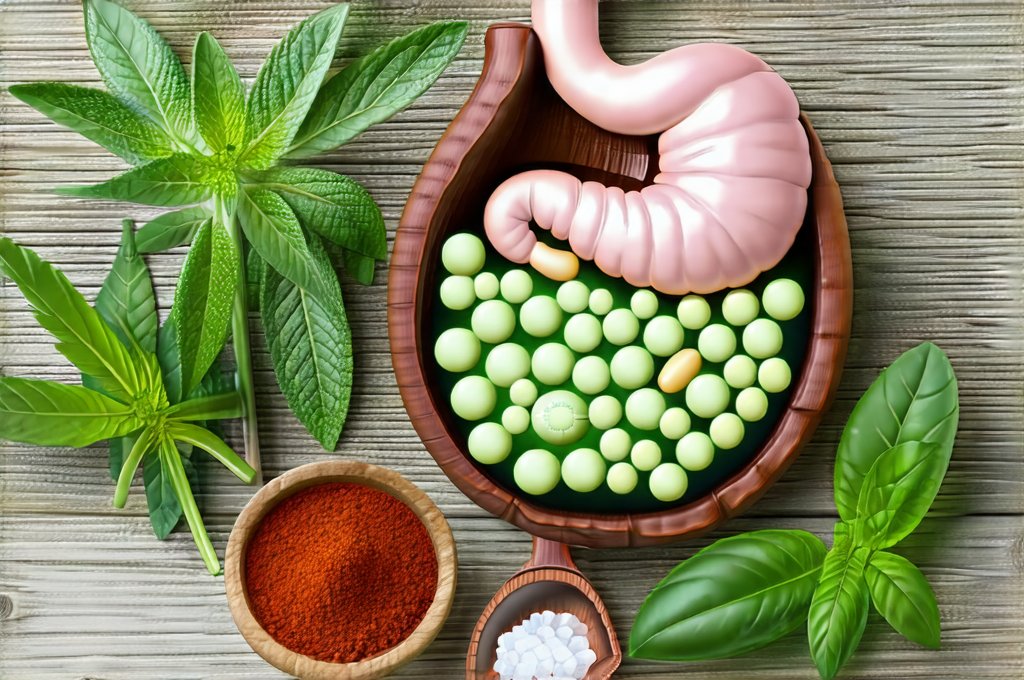Digestive gas is an incredibly common experience, affecting nearly everyone at some point in their lives. It’s often dismissed as merely embarrassing, but excessive or persistent gas can significantly impact quality of life, causing discomfort, bloating, and even pain. Understanding the causes behind digestive gas is crucial – it’s not always about what you eat, though diet certainly plays a role. Factors like swallowing air (from eating too quickly, chewing gum, or carbonated beverages), food sensitivities, imbalances in gut bacteria, and underlying medical conditions can all contribute. While over-the-counter medications offer temporary relief, many people are turning to herbal remedies as gentler, more holistic approaches to manage gas and improve digestive health. This article will explore several herbal options that have shown promise in alleviating digestive discomfort related to gas, examining their traditional uses, purported mechanisms of action, and current research – always with the important disclaimer that it’s essential to consult a healthcare professional before starting any new supplement regimen or making significant changes to your diet.
The world of herbal medicine is ancient and complex, built on centuries of observation and experience. However, it’s vital to approach these remedies with informed skepticism and realistic expectations. Herbs aren’t quick fixes; they often work best as part of a broader lifestyle strategy that includes dietary adjustments, stress management, and regular physical activity. Furthermore, herbal remedies can interact with medications or have contraindications for certain health conditions, making professional guidance essential. We will focus on herbs generally recognized as safe for most individuals when used appropriately, but this does not replace the need for personalized medical advice. The goal is to provide informative insights into potential natural support options for digestive gas, empowering readers to make informed decisions about their own wellbeing in consultation with healthcare providers. Considering small wins can also be a good approach while incorporating these remedies.
Herbal Allies: Carminatives and Beyond
Carminative herbs are perhaps the most well-known category when it comes to relieving gas. The term ‘carminative’ itself refers to substances that help relieve flatulence – they either reduce the formation of gas, facilitate its expulsion, or both. Many traditional cuisines incorporate carminative herbs in cooking precisely for this reason. Fennel seeds, anise seeds, and caraway seeds are classic examples, often chewed after meals or brewed into tea. These herbs contain compounds that relax the smooth muscles of the digestive tract, allowing gas to pass more easily. They can also have mild anti-inflammatory properties, which may help soothe an irritated gut. Beyond simply relieving symptoms, some research suggests carminatives might influence the composition of gut bacteria, promoting a healthier microbiome – though this area requires further investigation. You could explore natural remedies to supplement your diet as well.
However, limiting herbal approaches solely to carminatives overlooks other potentially beneficial herbs. Ginger, for example, isn’t strictly a carminative but boasts powerful digestive properties. It stimulates gastric emptying – the process by which food moves from the stomach to the small intestine – preventing stagnation and reducing gas production. Chamomile, known primarily for its calming effects, also possesses gentle antispasmodic qualities that can help ease intestinal cramps associated with bloating and gas. Peppermint oil, specifically enteric-coated capsules (more on why later), has been extensively studied for Irritable Bowel Syndrome (IBS) symptoms, including bloating and gas, demonstrating significant relief in many individuals. It’s important to remember that herbal remedies often work synergistically – meaning their combined effect is greater than the sum of their individual parts. Utilizing herbal teas can also offer relief.
The effectiveness of these herbs can be enhanced by how they are consumed. For carminative seeds like fennel or anise, chewing a small amount after meals can directly stimulate digestion and release aromatic compounds. Teas are a gentle way to deliver herbal benefits, but brewing time and water temperature can impact potency. Herbal tinctures (alcohol-based extracts) offer concentrated doses and faster absorption. Finally, encapsulated forms – particularly for peppermint oil – ensure targeted delivery to the intestines without triggering heartburn in some individuals.
Addressing Root Causes with Digestive Herbs
While symptomatic relief is important, a truly holistic approach to digestive gas focuses on addressing underlying causes. Dysbiosis, an imbalance in gut bacteria, can contribute significantly to gas production as certain bacterial strains ferment undigested carbohydrates. Herbs like slippery elm bark and marshmallow root offer mucilage – a soothing substance that coats and protects the intestinal lining. This promotes healing and creates a more favorable environment for beneficial bacteria to thrive. Probiotic supplements are also valuable here but incorporating prebiotic foods (like onions, garlic, and bananas) alongside herbal support can feed existing good bacteria, enhancing their effectiveness. Restoring pH balance is also important for gut health.
Another common cause of gas is incomplete digestion. When food isn’t broken down properly in the stomach or small intestine, it reaches the colon where bacteria ferment it, producing gas as a byproduct. Digestive bitters – often containing herbs like dandelion root, gentian, and artichoke leaf – stimulate digestive secretions (stomach acid, bile, pancreatic enzymes), improving nutrient absorption and reducing fermentation. These should be taken before meals to maximize their impact. However, individuals with conditions like ulcers or GERD should exercise caution with bitters as they can increase stomach acid production.
Finally, stress plays a huge role in digestion. The gut-brain axis is a bidirectional communication pathway between the digestive system and the brain. When stressed, our bodies shift into “fight or flight” mode, diverting blood flow away from digestion and impairing motility. Adaptogenic herbs like ashwagandha and rhodiola can help modulate the stress response, promoting relaxation and supporting healthy digestion. These aren’t direct carminatives but address a key contributing factor to digestive upset. You might find herbal remedies helpful in managing related symptoms as well.
Peppermint Oil: A Deeper Dive & Considerations
Peppermint oil is one of the most researched herbal remedies for digestive gas and IBS symptoms. Its active compound, menthol, has been shown to relax the muscles in the gastrointestinal tract, reducing spasms and allowing gas to pass more easily. Numerous clinical trials have demonstrated its effectiveness in alleviating bloating, abdominal pain, and flatulence associated with IBS. However, simply taking peppermint oil isn’t always enough – enteric-coated capsules are crucial for optimal results. This coating protects the oil from being broken down by stomach acid, ensuring it reaches the intestines where it can exert its therapeutic effects.
Despite its benefits, peppermint oil is not without potential side effects. It can cause heartburn in some individuals, particularly those with GERD (gastroesophageal reflux disease). Therefore, enteric-coated capsules are even more important for these individuals. Additionally, peppermint oil should be avoided by people with severe liver or kidney disease. Dosage varies depending on the product and individual sensitivity; starting with a low dose and gradually increasing it as tolerated is recommended. It’s also crucial to purchase high-quality peppermint oil from a reputable source to ensure purity and potency. Learning how to use these remedies correctly can maximize their benefits.
Beyond IBS, peppermint oil may also be helpful for other digestive complaints involving gas, such as functional dyspepsia (indigestion without an identifiable cause). However, it’s important to remember that peppermint oil is not a cure-all. It’s most effective when used as part of a comprehensive approach that includes dietary modifications, stress management techniques, and potentially other herbal or conventional therapies under the guidance of a healthcare professional. Understanding digestive enzyme production can also inform your choices.
It is crucial to reiterate: this information is for educational purposes only and should not be considered medical advice. Always consult with a qualified healthcare provider before starting any new supplement regimen or making significant changes to your diet, especially if you have underlying health conditions or are taking medications.


















